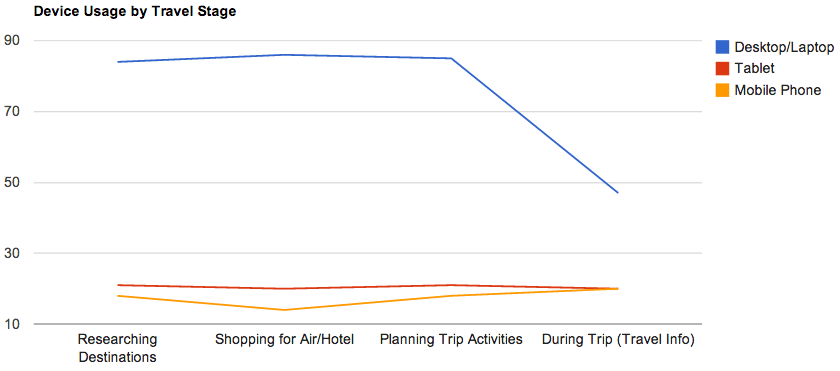Desktop Still Dominates the Travel Planning and Booking Process

Skift Take
Despite the buzz about mobile booking, desktops and laptops still play the primary role during the travel planning and decision process.
An average of 85 percent of travelers use a desktop or laptop to research a destination, shop for air tickets and hotels, and plan activities. This is significantly larger than the average 17 percent of travelers that use a mobile phone for those same activities. This, according to an Expedia survey of 1,058 travelers living in the United States.
Mobile phones are used more often during the actual trip. Usage jumps 20 percent once travelers are on the move and need to search for activities, restaurants, and reviews.
Tablets are used consistently throughout all travel stages. Approximately 20 percent of travelers are a tablet during each stage of the travel experience.
Information Accessed on Mobile
Weather information and restaurant reviews are the types of information most often accessed on a mobile device.
The increase in mobile usage is more significant when compared to the past year. The amount of time spent looking at travel-related content on a mobile device increased 45 percent year-over-year.
In comparison, time spent looking at travel-related content on desktops and laptops only increase 2 percent year-over-year.
The below graph outlines the information more likely to be accessed on a mobile device:
The full report Understanding the Role of Content in the Travel Purchase Path can be downloaded from Expedia Media Solutions here.
Interestingly, last night PInterest announced that 75% of its traffic is via mobile while announcing its new trip planning product.






